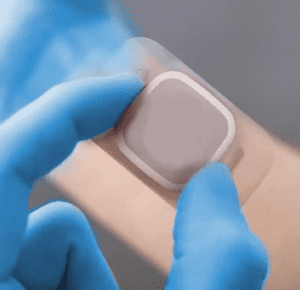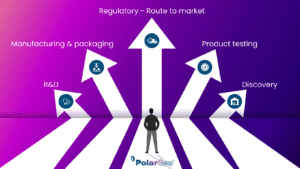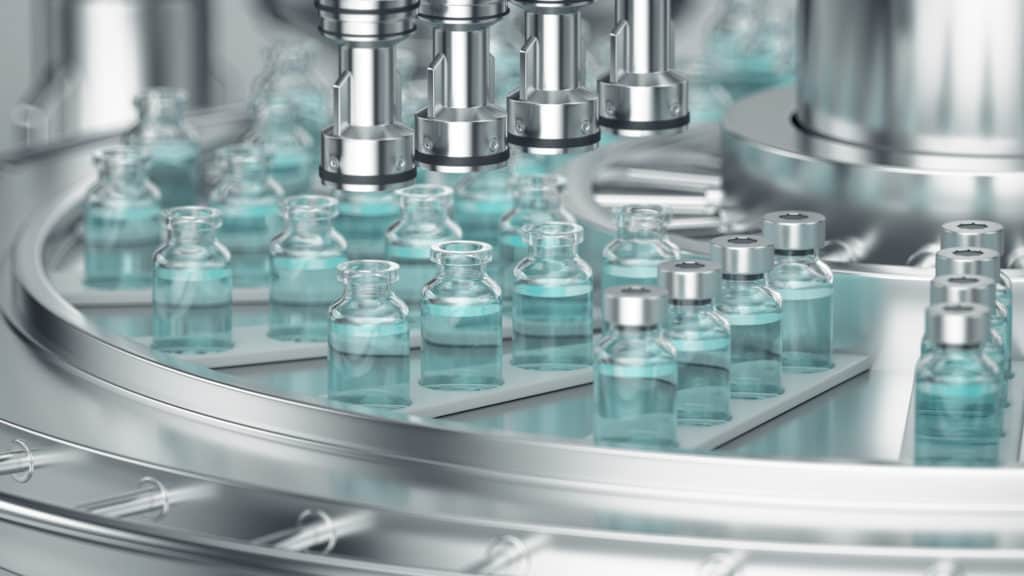The process of formulating a fluid-based medical device typically involves several key steps, we review the process from concept to market and answer the questions around outsourcing your application.
The steps involved may vary depending on the specific product and application, but below is a general guide around the development of your fluid-based medical device.
- Define your product requirements
- Liquid formulation
- Formulation testing
- Prototype development for optimisation
- Prepare & submit for regulatory approval
- Clinical trials
- Manufacture and package
- Market and distribute
An example of how outsourcing your liquid formulation can aid the development of your device:
A customer of PolarSeal was developing a wound care hydrogel; a type of biomaterial that can absorb and retain water, this feature makes hydrogels ideal for a variety of medical applications. In this instance our customer wanted to develop a hydrogel wound care dressing to expand their product portfolio, our specialist R&D team were able to create a formula and specify the materials needed for the wound gel, then work with our supply chain and liquid formulations to manufacture and distribute the formula into tubes ready for packaging and market.
So, why outsource the development of a fluid-based medical device like a medical hydrogel? For one, the development of fluid based medical devices including hydrogels is a complex process that requires specialised equipment and expertise therefore by outsourcing to a contract manufacturer, you can benefit from their expertise and experience without having to invest in expensive equipment or hire additional personnel. Additionally, outsourcing can help you accelerate time to market, reduce costs, and mitigate risks associated with regulatory compliance and safety.
Some considerations a product developer may factor into the decision to outsource are below;
- Lack of in-house expertise: If your company does not have the necessary expertise in fluid formulation, medical device design, or regulatory compliance, outsourcing can be a good option. By working with a company that specialises in these areas, you can benefit from their expertise and experience.
- Faster time to market: Developing a medical device can be a lengthy and complex process, especially if you are starting from scratch. Outsourcing to a CMO can help you speed up the process by leveraging their existing infrastructure, equipment, and experience.
- Cost savings: Developing a fluid-based medical device can be expensive, especially if you need to invest in new equipment or facilities. Outsourcing to a CMO can help you save on these upfront costs and reduce your overall development expenses.
- Risk mitigation: Developing a medical device involves many risks, including regulatory compliance, safety, and efficacy. Outsourcing to a CMO can help you mitigate these risks by working with experts who are well-versed in the regulatory landscape and have experience navigating potential roadblocks.
- Flexibility: Outsourcing to a CMO can provide flexibility in terms of project management and resource allocation. For example, if you only need to develop a single component of a larger medical device, outsourcing to a CMO can be a more cost-effective option than building out the necessary infrastructure in-house.
In summary, outsourcing the development of fluid-based medical devices like medical hydrogels can be a smart and cost-effective strategy for companies looking to bring innovative medical products to market. Whether you lack in-house expertise, need to accelerate time to market, or want to save costs, working with a CMO can help you achieve your goals and bring your vision to life.








